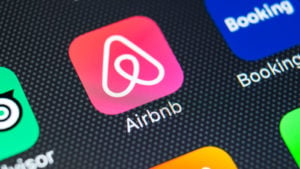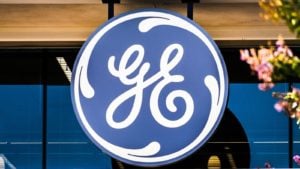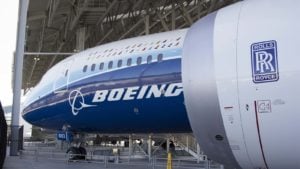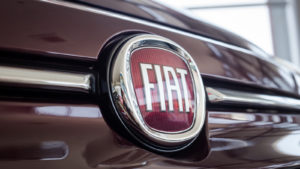The U.S. stock market has rarely seemed more out of touch with reality. Mega-capitalization tech stocks have continued to soar amidst the coronavirus pandemic, confounding market analysts with their ever-growing valuations.
As 2021 approaches, however, markets have started to regain their sanity. Since September, growth stocks have mostly traded flat while cyclical stocks have embarked on a belated recovery. The pattern looks set to continue through next year as cyclical stocks with pent-up demand begin to recover.
However, choosing cyclical stocks can be a dangerous game — weaker firms have a nasty habit of going bankrupt in bad times. Just ask Bear Stearns or American Airlines (NASDAQ:AAL) in 2008. That means investors need to prioritize balance sheet strength as well as potential gains.
With that, here are seven cyclical stocks with both pent-up demand and solid underlying strength:
- Airbnb (NASDAQ:ABNB)
- General Electric (NYSE:GE)
- Boeing (NYSE:BA)
- Carnival (NYSE:CCL)
- Delta (NYSE:DAL)
- Booking Holdings (NASDAQ:BKNG)
- Fiat Chrysler (NYSE:FCAU)
Cyclical Stocks with Pent-Up Demand: Airbnb (ABNB)

Airbnb’s blockbuster IPO capped off the 2020 year with a bang — shares jumped 135% on its first trading day. Since then, however, prices have slipped 15% as insiders have begun unloading shares. This provides a golden opportunity to jump into a fantastic long-term company.
Airbnb operates in a relatively cyclical industry. Travel slumped during the 2008 financial crisis and then fell out of bed during the 2020 pandemic. Airbnb’s bookings also suffered; revenues bottomed out in Q2 at around a third of the prior year’s levels. Since then, Airbnb’s fortunes have diverged from other traditional hotel chains as “staycation” travelers have come back. Q3’s revenues have since recovered to 82% of 2019’s levels, versus just 43% for Marriott (NASDAQ:MAR).
Still, pent-up demand for destination and business travel will push Airbnb’s business back even stronger in 2021. Before the pandemic, companies had already been warming up Airbnb as a corporate travel option. And during the pandemic, people have put off significant vacations. So, once travel restrictions get lifted next year, investors can expect the home-sharing firm’s revenues to come roaring back even stronger than before.
General Electric (GE)

General Electric’s two crown jewels — jet engines and medical imaging devices — took a beating in 2020. With airlines grounding their fleets and hospitals prioritizing coronavirus care, the industrial stalwart saw demand hit with a one-two punch.
But pent-up demand should come back in 2021. As aircraft take back to the skies (particularly Boeing’s 737 Max), they will all need intensive servicing. The aircraft industry works on a razor-razorblade model; companies like General Electric sell engines at almost break-even prices and profit from high-margin servicing. With its growing backlog, GE looks set to recover better than before.
Its medical imaging segment will also benefit. As the coronavirus pandemic starts to fade, hospitals and medical centers will need to catch up on their delayed expenditures. MRI machines don’t last forever. And GE, which shares the market with Siemens (OTCMKTS:SIEGY), stands to benefit greatly.
Boeing (BA)

For those with a great deal of patience, Boeing is one of several intriguing cyclical stocks. The company had already seen demand shrink with its 737 Max fiasco, but it took the coronavirus pandemic to make shares genuinely cheap.
So, why patience? Airlines don’t expect air travel to reach normalcy until 2022. And even then, Boeing’s backlog will take years to refill as it rehabilitates its brand image.
But then, there’s good news too. Boeing has an unbeatable duopoly in the large jet airliner market; upstarts like Brazil’s Embraer (NYSE:ERJ) and China’s Comac remain technologically far behind. And in the aircraft industry, where safety and fuel efficiency reign supreme, airlines have consistently decided its better to spend a little more today than risk disaster years down the road. Technological advantages are lifesavers in the world of cyclical industries. Banks are far more willing to lend to companies they know will eventually survive. And as the coronavirus pandemic shows, Boeing is one of those survivors.
Carnival (CCL)

Those with less patience should consider Carnival instead. The world’s largest cruise liner has seen demand for 2021 rebound faster than expected. In its third-quarter earnings call, CEO Arnold Donald revealed that reservations for the second half of 2021 were on the higher end of historical ranges. While 40% of those bookings were from future cruise credits (i.e., rebookings from past cancellations), “pent-up-demand” drove a significant number of new cruisers to the brand.
Carnival is also the best capitalized of the three cruise lines, which includes Norwegian (NYSE:NCLH) and Royal Caribbean (NYSE:RCL). Years of maintaining a conservative balance sheet are starting to pay off; the company now holds $8.2 billion in cash, or more than enough to last through 2021.
It won’t be completely smooth sailing, however. The 2020 pandemic has created a massive financial sinkhole that will take years to fill. But shares should recover as travelers look to take to the seas once again.
Delta (DAL)

For financial quality, Delta has long bested the other legacy carriers. Return on invested capital reached 7.6% in 2019, compared to 4.3% at American and 6.6% at United.
And in cyclical heavy-investment industries like aviation, financials matter. Delta stock is down just 29% for the year while United’s (NASDAQ:UAL) is down 47%. Old-time investors have a long memory of airline bankruptcies over the years.
Yet, the travel industry will eventually recover. And as it does, investors should consider buying Delta airlines for its incredible value. Shares trade at just 9.8x 2022 earnings (forward P/E), compared to 15x for Southwest (NYSE:LUV). Delta also looks like a beneficiary of the routes it runs. Unlike JetBlue (NASDAQ:JBLU), which relies on concentrated LA and NYC routes, Delta has a broader base of domestic and international routes to cushion future blows.
Booking Holdings (BKNG)

For years, Booking Holdings — the owner of Priceline, Kayak, and OpenTable — has sat on my “to-buy” list. But shares were too expensive; since peaking at 23 times EV-to-EBITDA in 2016, BKNG has underperformed the S&P 500 by over 20% as its sky-high valuation has come back to earth.
Travel, however, is a cyclical industry. And with the coronavirus pandemic hitting Priceline’s core business, investors now have a rare chance to buy a high-quality grower for cheap.
Booking.com works in the high-margin OTA (online travel agent) business, where it shares the market with U.S. based Expedia (NASDAQ:EXPE) and Singapore-based Trip.com (NASDAQ:TCOM). Margins are high; in Q3, Booking reported 30% net margins, making it even more profitable than Apple on a percentage basis.
The company also has a more resilient business model than its rivals. Expedia has already burned through almost $2 billion this year from paying out customer refunds. Booking, on the other hand, charges less in up-front fees, meaning there’s less to refund. The company saw its operating business add $4 billion in cash to its balance sheet.
Booking.com weathered the pandemic with a five-star rating. Let’s see how they’ll do when pent-up demand travel demand comes back in 2021.
Fiat Chrysler (FCAU)

In the world of automotive M&A (mergers and acquisitions), the Fiat/Chrysler merger stands out as a rare success story. After acquiring Chrysler in 2009, CEO Sergio Marchionne astonished critics by successfully integrating its U.S. manufacturing with Fiat’s European home base. Michael Manley, who took over in 2018, has continued to build on that strength.
The company’s success has shined through both its financial statements and stock price. Its return on capital (ROC) sits at 8%, or three times higher than Ford’s (NYSE:F). And its stock has risen 42% in the last three months, far outpacing other Detroit automakers. Even better, Fiat Chrysler has one of the cheapest valuations in the industry. Its forward P/E ratio sits at 6.3 times.
Demand for autos is still low due to the coronavirus pandemic. A survey by McKinsey, a consulting firm, found purchase intent was still 14% below pre-Covid-19 levels this fall. As we move into 2021, Fiat Chrysler will discover plenty of pent-up demand to fill.
And with virtually all legacy automakers introducing electric vehicles of their own, demand for their products will unlikely fall to the wayside anytime soon.
On the date of publication, Tom Yeung did not have (either directly or indirectly) any positions in the securities mentioned in this article.
Tom Yeung, CFA, is a registered investment advisor on a mission to bring simplicity to the world of investing
